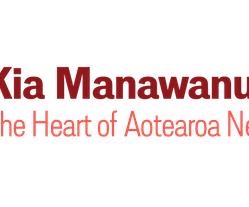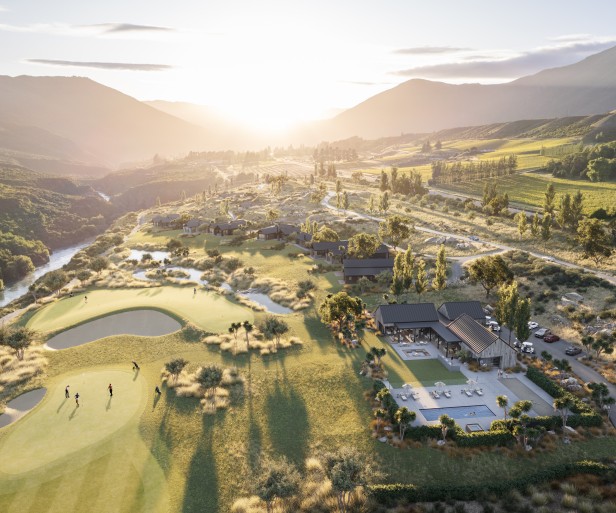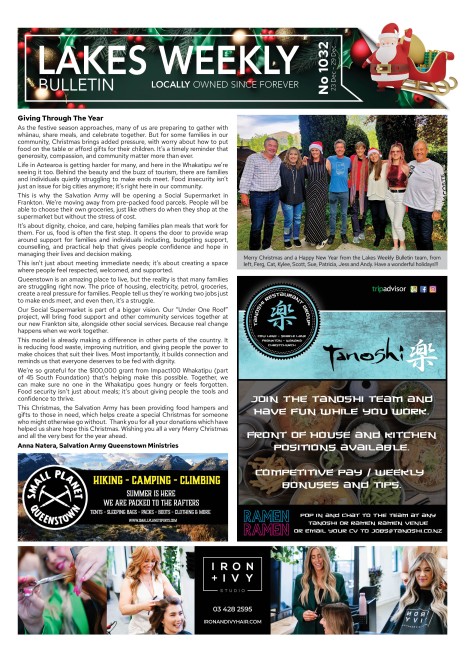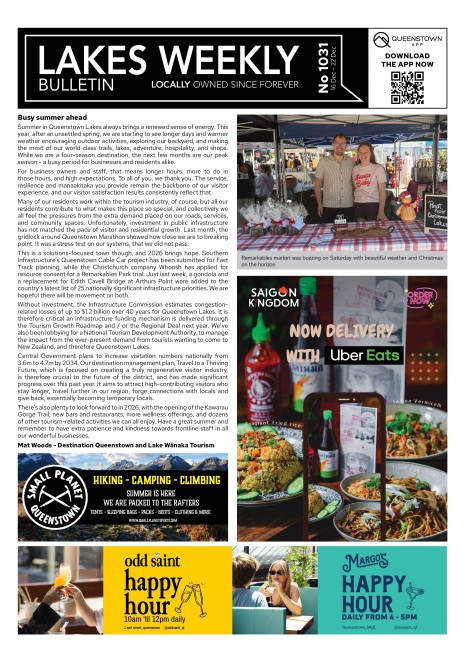Joseph Mooney - MP for Southland

My month has been a busy one including attending Waitangi Day in Queenstown, hosted by the Queenstown Lakes District Council and Kāi Tahu - Kā Papatipu Runaka. It was a great event and highlighted the deep connections and diverse community we are fortunate to have in our region.
I was also able to enjoy a day at the Natural Selection Tour on Mt Dewar and it was thrilling to see the world’s best male and female mountain bike riders competing alongside our abundant local talent. Todd Barber, the founder of Redbull Rampage, the biggest big mountain bike event on the planet, told me Queenstown is one of the top three mountain biking spots in the world.
I love to ride in the Queenstown hills myself, and when I do I often stop to pull out wilding pines beside the trail. Wildings are a significant issue for our region so I am pleased to see the recent announcement that Government is investing $30 million from the International Visitor Conservation and Tourism Levy to fund more than a dozen projects to boost biodiversity and the tourist economy.
Part of this funding is for stopping and removing wilding pines from our iconic landscapes. Tourism is a crucial economic driver, and nature is our biggest draw card for international tourists. Investing in conservation tourism is a win-win.
The Government is very focussed on growing our economy and Queenstown Lakes is already punching above its weight. Since 2000, 50% of the Otago Region’s GDP growth came from Central Otago and Queenstown Lakes. The Government’s Regional Deals framework offers an opportunity to address this growth and subsequent infrastructure needs in a way that can make a powerful change for our region.
Growth in New Zealand’s regions has a huge part to play in strengthening the economy so Kiwis can enjoy better public services, infrastructure, and overall prosperity. Last week I met with the Queenstown Chamber of Commerce where we discussed the joint proposal of the Queenstown Lakes District Council, Central Otago District Council and Otago Regional Council for the Government’s Regional Deal programme.
Their high quality, comprehensive proposal outlines our region’s significant growth projections and recommends ways Central and Local Government can better work together to overcome the challenges that come with expected expansion for inland Otago.
Sectors such as transport, health and infrastructure are covered in the proposal, which if agreed to by councillors will soon be submitted for consideration.
It is really encouraging to see our councils working together to present such a strong plan. The Government’s intention is to have the first Regional Deal concluded by the end of 2025, with three deals expected to be in place by October 2026.








